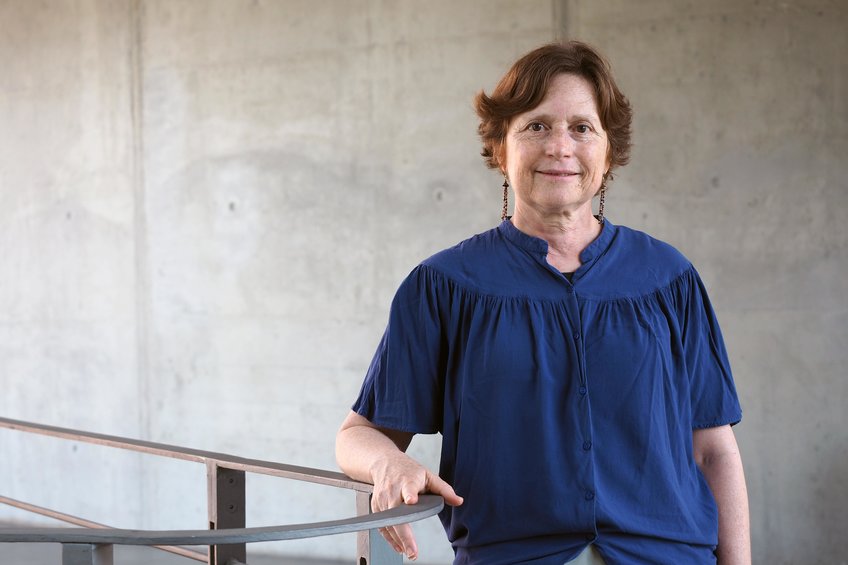
'Rejuvenation and deeper thoughts'
Interview with Joan Mecsas on her sabbatical at the MPIIB
Mrs. Mecsas, how have things been since you've started here?
It has been wonderful! I have learned a tremendous amount from what Arturo’s Group is doing. It is exciting to hear how they are approaching a cell – the neutrophil – that we are interested in from a different angle. So far, it has been really fun intellectually. It has also been a very productive time: I’ve finished three papers that have been accepted since I've been here. I have been binge writing them – thanks to my graduate students’ hard work of course! And, I am working on more this summer.
What were your reasons to take a sabbatical?
My lab studies two bacterial pathogens Klebsiella and Yersinia. About six years ago, we realized that one of the bacterial pathogens, Yersinia, interacts with neutrophils quite a bit, but my lab did not know much about neutrophils. So, I reached out to Arturo and his colleague Bärbel Raupach, who I've known since the 90s, to see if I possibly could do a sabbatical and come here to learn about neutrophils. I wanted to jumpstart our studies on bacteria-neutrophil interactions – and they said yes!
Joan Mecsas
It still sounds like a big step – what was the decision process like?
For my science’s sake, I would have liked to come about four years ago, but for my family it was not the right time to spend six months or even a year in Germany. My daughter was 15 at the time and it seemed silly to take her out of school where she was very, very happy. If she had been miserable, maybe we would have come to Germany four years ago. But now she has happily finished high school and is in her second year of college, so it seemed like a good time to go.
What about the logistics of leaving for six months?
The logistics were a little challenging, but the harder part was actually leaving the people behind. Of course, you ask yourself what happens if an emergency comes up in the family. We had to make sure we had backup plans, because it could take us 24 hours to get back home. But we're also using WhatsApp and Skype and this works well. Despite the distance I'm in touch with many friends and colleagues.
And leaving the lab behind?
I am still running my lab. I have group meetings via Skype once every other week, and I have individual one on one meetings, also by Skype. So I see my lab members all the time. Two years before I started the sabbatical, I started to move my whole lab to electronic notebooks. So now I can look at data remotely as we can go through specific experiments. The one thing I didn't want was for anybody to feel like I was abandoning them.
One benefit that I didn't realize until I got here is that because Germany is six hours ahead of Boston, I don't get any work emails until 3 o'clock in the afternoon. This has liberated quite a bit of time for me, and I really enjoy it.
After your experiences, would you recommend a sabbatical for a senior scientist?
Oh absolutely! In everyday life as a researcher your time can get eaten away by administrative tasks and meetings and many other responsibilities that are important to do. I value doing them, but it is good to take a break for a little while. So far, it has been fabulous to be able to focus on my lab and the science that we are trying to do now, to interact with, listen and learn from people here, and to think about what I want to be doing in the next five or ten years. I think the real purpose of the sabbatical is rejuvenation and be able to think both more broadly and deeply than during the typical day-to-day.
The interview was conducted by Christian Denkhaus